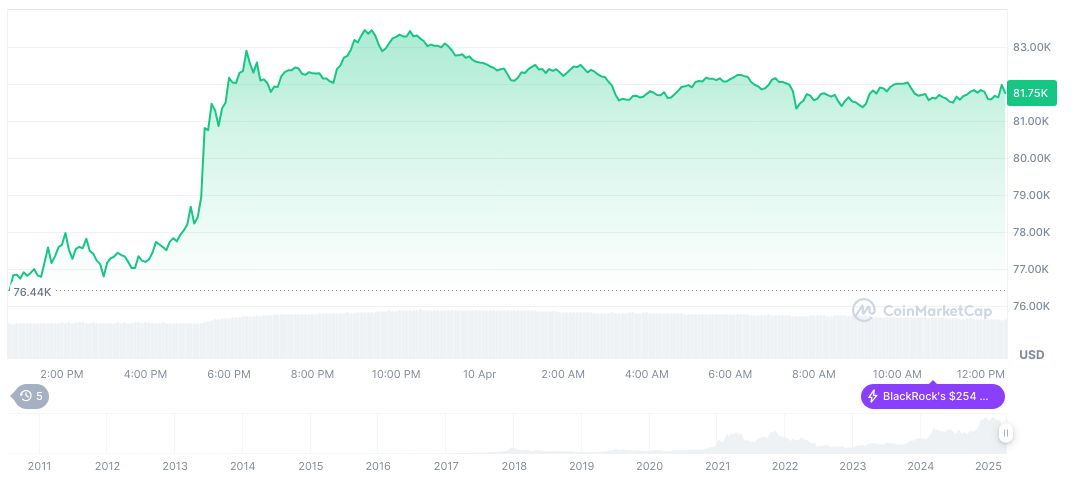- US stocks fall; tariffs, policies impact economy.
- DJIA, S&P 500, Nasdaq decline significantly.
- Crypto markets show mixed signals; Bitcoin sees inflow.
The U.S. stock market recorded significant losses on April 10, 2025, with major indexes like the Dow Jones, S&P 500, and Nasdaq posting sharp declines.
Analysts point to rising tariffs and tight government policies as primary drivers of the drop, with experts signaling recession risks.
U.S. Market Plunges: Dow Down 2.5%, Nasdaq 4.3%
The Dow Jones Industrial Average fell by 2.5%, while the S&P 500 and Nasdaq Composite Index dropped 3.5% and 4.3%, respectively.
Prolonged government policies such as spending cuts and tightened immigration measures have contributed to negative market reactions. Kelly warned of recession risks this year unless policy changes occur to stabilize tariff policies and trade relations.
“The tariff shadow has not yet dispersed… the market has realized that the economy is facing a comprehensive impact,” said David Kelly, Chief Global Strategist at J.P. Morgan Asset Management. He warned that, without policy changes, the U.S. economy could face a recession later this year.
The market reaction was swift, with many investors expressing concerns over economic stability. Analysts and financial strategists have called attention to the need for policy reform to prevent a potential recession.
Bitcoin Resilient: $9.9 Million Inflow Amid Market Woes
Did you know? In times of market instability, Bitcoin often retains investor confidence, as seen with a $9.9 million inflow on April 10, despite broader market concerns.
Bitcoin (BTC) reached $67,320 on April 10 according to CoinMarketCap. It faced volatility but recorded an overall inflow of $9.9 million, even as major Bitcoin ETFs observed significant outflows.

Experts from Coincu Research suggest that the ongoing policy issues could impact not only traditional markets but also affect cryptocurrency performance. Enhanced focus on global trade stability may emerge as a focal point for financial strategists, with reforms potentially fostering a more resilient market environment.























